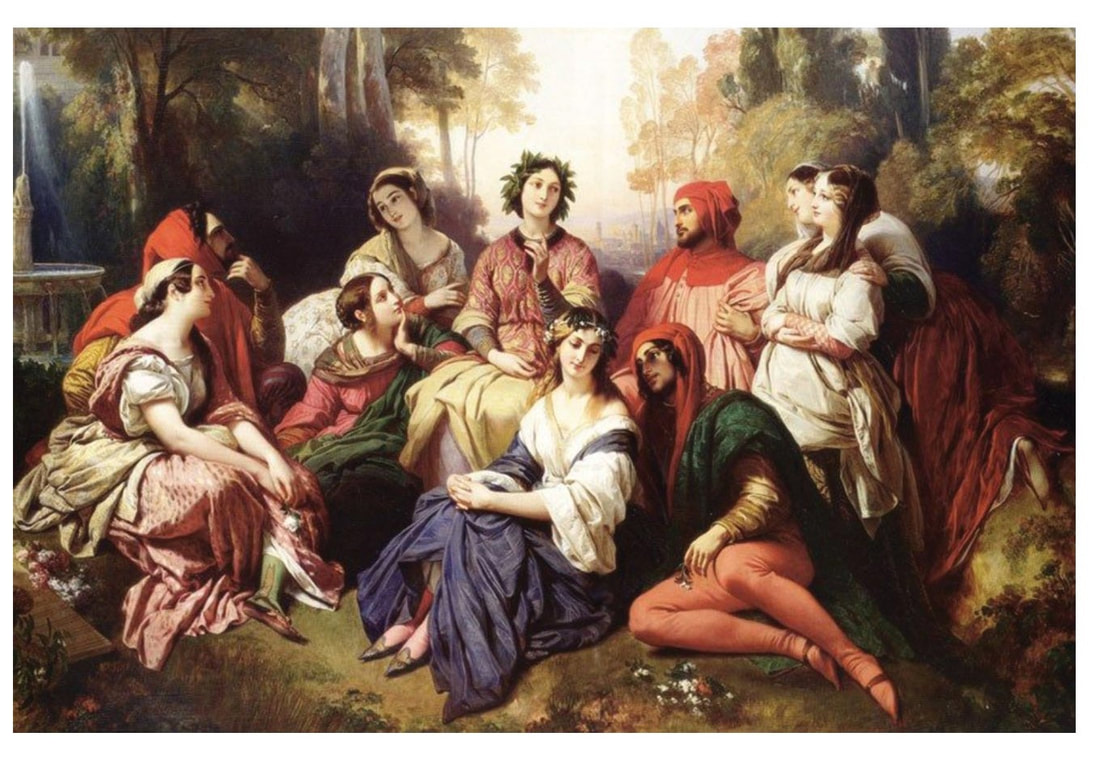|
Were your holidays quieter than usual this year? Each time we plan to travel or gather, another variant comes along. Happily, Santa and the public library kept me well set to escape without going anywhere.
The bubonic plague decimated Florence, Italy, in the spring and summer of 1348. In Giovanni Boccaccio’s Decameron, written over the next five years, ten young people escape to a country house after their relatives have died or fled. To pass the time, the ten dance, sing, and tell the hundred stories that make up most of the book. Escapism gets a bad rap, sometimes well deserved. Boccaccio describes Florentines who escape into debauchery, going from tavern to tavern for wine and sex. Others abandon even their children, caring only for personal safety. But the ten wise storytellers escape by finding safe, shared pleasures in a situation they can’t otherwise control. Sing and dance, tell or read stories, watch television or solve jigsaw puzzles. Sometimes escaping is the best you can do. Image: Franz Xaver Winterhalter, The Decameron, 1837.
2 Comments
Connie Gill
1/3/2022 09:08:46 am
I'm all for escapism and some of my fondest memories are of escaping into a story.
Reply
1/4/2022 07:19:19 am
May your 2022 be filled with the best kinds of escapes! One thing I hadn't remembered about Decameron was that the young people waited till family members no longer needed help before leaving town. I hadn't really thought about responsible vs irresponsible escapism - into a book vs into a drunken binge.
Reply
Leave a Reply. |
AuthorI'm a historian who writes novels and literary nonfiction. My home base is Madison, Wisconsin. Archives
July 2024
|

 RSS Feed
RSS Feed